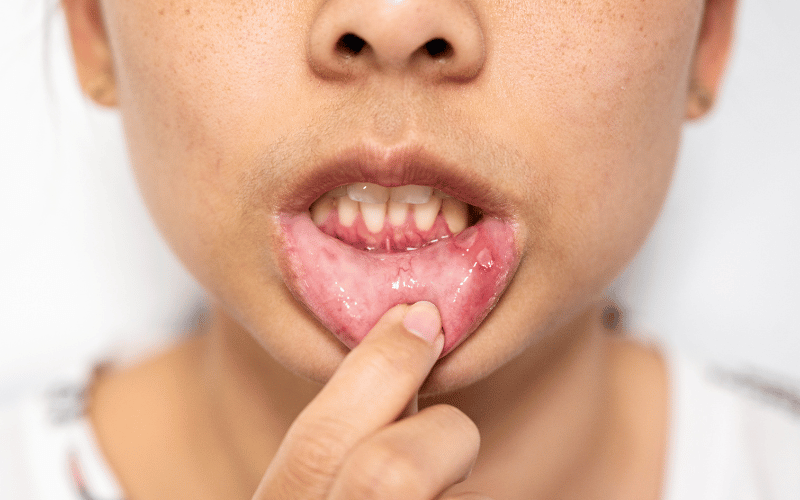Symptom 10: Mouth Sores

Mouth sores, although less common than other symptoms, can occur in adults with chickenpox. These sores, appearing on the gums, inside the cheeks, or on the tongue, can cause significant discomfort, making eating and drinking challenging. The development of these sores is linked to the varicella-zoster virus’s effect on the mucous membranes.
The nature of chickenpox-related mouth sores is such that they can range from small, isolated ulcers to more widespread lesions. They are often painful and sensitive, reacting sharply to spicy, acidic, or hot foods and beverages. This sensitivity can lead to a decrease in oral intake, exacerbating the issue of reduced appetite commonly seen in adult chickenpox.
Managing mouth sores involves a focus on oral hygiene and dietary adjustments. Rinsing the mouth with a mild saline solution or an antiseptic mouthwash can help in reducing discomfort and preventing infection. Soft, bland foods that are gentle on the sores should be prioritized, and hot, spicy, or acidic foods should be avoided.
The duration of mouth sores varies, but they generally begin to heal as the body fights off the chickenpox virus. The healing process can be gradual, and it’s important to continue with gentle oral care and appropriate dietary choices until the sores have fully resolved.
The healing of mouth sores is often a late but welcome development in the recovery from adult chickenpox. As these sores heal, eating and speaking become less painful, contributing to an overall improvement in quality of life and signaling a return to health. However, if mouth sores persist, worsen, or are accompanied by other concerning symptoms, seeking medical advice is important. (10)